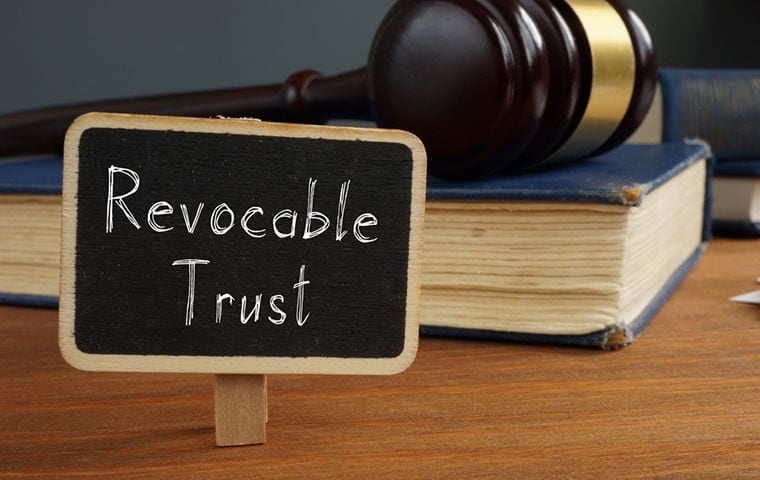 You’ll owe income tax on any investment income and the trust assets will be in your taxable estate. Image: Jack_the_sparow/Shutterstock.com
By: FEDweek Staff
You’ll owe income tax on any investment income and the trust assets will be in your taxable estate. Image: Jack_the_sparow/Shutterstock.com
By: FEDweek StaffRevocable trusts, also known as living trusts, are increasingly popular. They can serve two main purposes:
* Probate avoidance. Assets held in trust are not subject to the time and expense of probate. They’ll stay in trust at your death or pass to heirs you’ve named in the trust document.
* Incapacity planning. If you become unable to manage your finances, a successor trustee can take over management of the trust assets. There will be no need for a guardianship hearing.
In the meantime, while you are capable you can be the trustee, in control of the trust assets. You can collect any investment income generated by those assets. If you should change your mind, you can revoke the trust and take back the trust assets into your own name.
In order to get these benefits, you must re-title assets so that they belong to the trust and not to you directly.
You also must realize that a revocable trust won’t provide any tax benefits (although, at the time of your death, assets in a revocable trust receive a step-up in basis to their fair market value). Just keep in mind you’ll owe income tax on any investment income and the trust assets will be in your taxable estate.
The way you would go about re-titling depends on the kind of asset, for example:
Real Estate: Execute a new deed, transfer ownership from your name to the name of the trust. This new deed should then be filed with the county recorder’s office.
Bank Accounts and Certificates of Deposit: Contact the bank to change ownership to the name of your trust and the trustee.
Investment Accounts and Stocks: Again, start with the institution and explain what you want to accomplish, then proceed with the appropriate forms for ownership change.
Vehicles: This varies a lot by state, but generally, you would need to apply for a new title in the name of the trust.
Personal Property: Creating an assignment of property form can transfer the rights of tangible personal property to your trust.
It’s a good idea to consult with an attorney or your financial advisor to make sure you get these steps right, and avoid a trip to probate anyway.
5 Steps to Protect Your Federal Job During the Shutdown
Over 30K TSP Accounts Have Crossed the Million Mark in 2025
The Best Ages for Federal Employees to Retire
Best States to Retire for Federal Retirees: 2025
Primer: Early out, buyout, reduction in force (RIF)
See also,
OPM Guidance Addresses Pay Issues arising During, After Shutdown

